With all the pressures of modern life, wellbeing isn’t easy at the best of times, and that includes for people who specialise in wellbeing. In this article, we sit down with Tim Mehrtens, Director of Workplace Wellbeing, of the award-winning My Everyday Wellbeing platform and programme, to talk about how he stays well during times of challenge and tips for us all.
What does wellbeing mean to you these days? How has your approach to wellbeing evolved over recent years?
Wellbeing is now about balance, self-awareness, and prioritising what truly matters. It’s recognising that resilience isn’t about never faltering, but about knowing when to rest, reflect, and seek help. I’ve learnt that real strength lies in acknowledging my limits and taking time to recharge, rather than pushing through constantly. Years of personal challenges have shown me that wellbeing is a journey, not a destination. It’s about adapting to my current mental state and adjusting strategies as needed, focussing on self-care, reflection, and vulnerability.
What does a typical day look like for you in terms of self-care and maintaining your wellbeing? Are there particular strategies or tools you use to stay grounded and manage stress during difficult periods?
I start each day with a cup of tea, using this quiet moment to check in with myself—assessing my mood and adjusting my focus for the day. More recently journaling has become a crucial tool, helping me untangle and organise muddled up thoughts and emotions in a cathartic, practical way. Physical activities like running or snowboarding force me to stay present, allowing my mind a break from worry. Spending time with close friends, the people who truly understand and support me, is a vital way to recharge emotionally. I’ve also sought psychological support, which has been essential for working through deeper layers of distress that I can’t manage alone.
What have been some of the challenges you’ve faced recently? What have you learnt about yourself through these experiences?
There have so been many challenges lately: my brother’s abduction, learning the role of substitute dad during an emotionally turbulent time, losing my mum to Alzheimer’s, having my identity stolen and being sent to debt collection for a bill that wasn’t mine—and the list goes on and on. These experiences have truly tested my resilience. Even knowing the ‘right’ wellbeing strategies, I’ve faced emotional fatigue and uncertainty. I’ve learnt that resilience isn’t about never needing help—it’s about knowing when to ask for it. Vulnerability is strength, and sometimes the bravest move is admitting you’re tired and need support.
What are some common pitfalls or mistakes you see people make when trying to maintain their wellbeing, and how can they avoid them?
Wellbeing is an umbrella term that is often misunderstood, but it makes sense when you realise it encompasses every aspect of life—mental, emotional, social, financial, physical, environmental… all of it. My passion lies in mental health due to my own challenges, and I often see people trying to handle everything themselves or overcomplicating self-care. I use the analogy of holding a bottle of water with a straight arm—it’s easy at first, but over time, it becomes unbearably heavy. Wellbeing is about recognising when the mental load is too much and finding moments to “put the bottle down.” Sustainable self-care is about making simple, intentional choices, setting realistic goals, and knowing when to take a break before burnout hits.
What advice would you give to people who are struggling with their wellbeing, especially those who might be feeling overwhelmed by their responsibilities?
Start small. Don’t try to fix everything at once. Reflect on what’s truly weighing you down, and seek support where possible. Know that you don’t have to carry it all alone—ask for help, take breaks, and do things that ground you in the present. You don’t need to have all the answers, you just have to keep going.
What advice would you give to HR, health and safety, and people leaders looking to support their staff right now?
Lead with compassion and authenticity. Don’t shy away from difficult conversations about mental health—being vulnerable yourself (when safe to do so) creates space for others to open up. Normalise regular check-ins, asking not just about work performance but how they’re truly feeling. Most importantly, model genuine wellbeing by prioritising your own self-care. Leadership in wellbeing starts with leading by example.










[…] our event partner, the Rāngai | The Wellbeing Collective with Tuihana Ohia (Woo Wellbeing) and Tim Mehrtens (Healthy Life […]